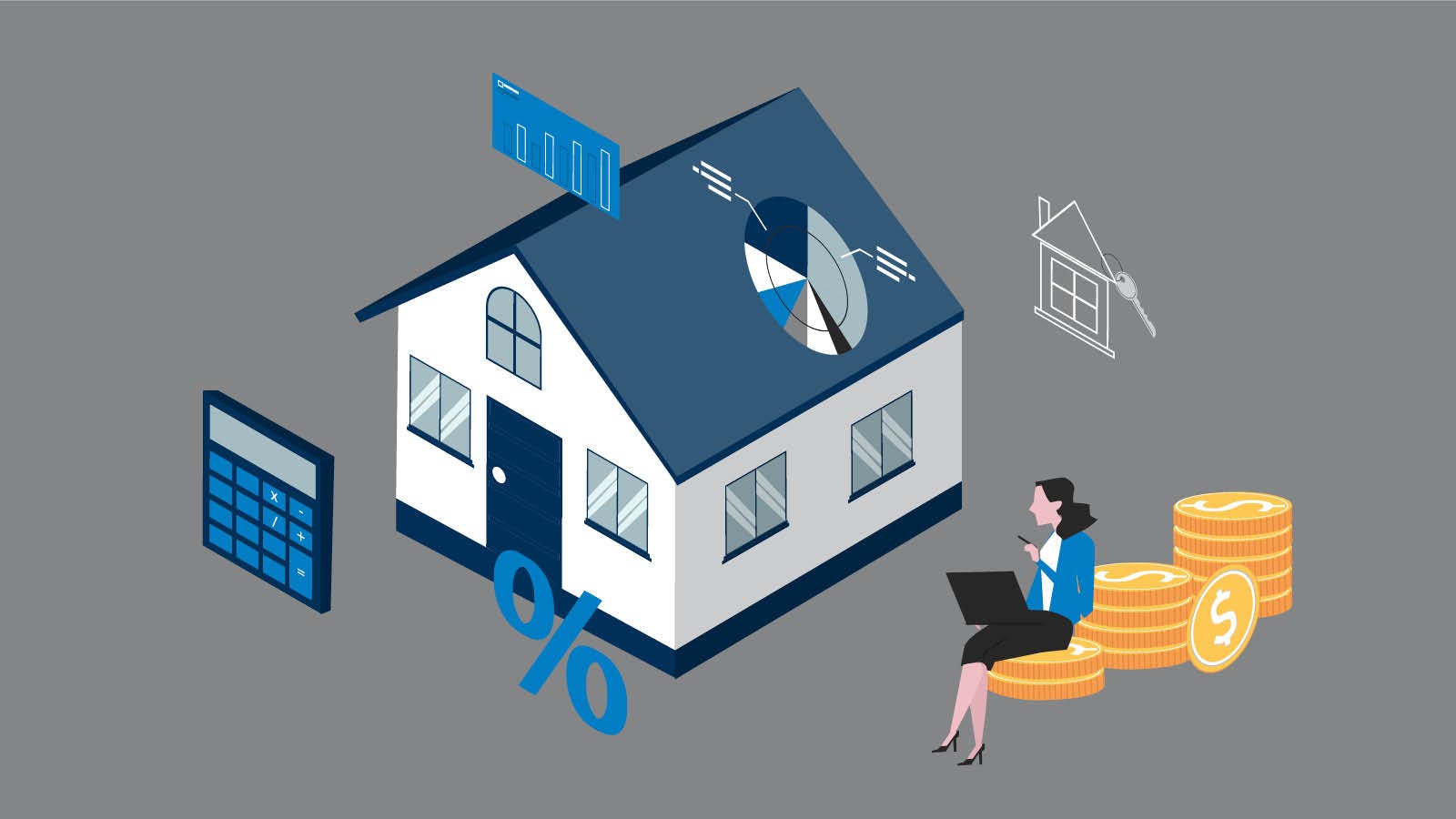

If you’re interested in buying a home, you’ve probably heard the term “mortgage interest” thrown around. Maybe you’ve even paid interest on a student loan or credit card.
But what exactly is interest? And how does mortgage interest work, specifically?
These are simple questions with complex answers, so let’s take them piece-by-piece:
Mortgage Interest: A fee you pay in exchange for the privilege of borrowing money. Basically, the lender charges you a percentage amount, say 7%, to use their money. That would be a 7% interest rate. Over time, with interest, you end up paying more than the original loan amount. This is how your lender gets paid.
Typically, mortgage interest is calculated based on the outstanding amount. NOT your original loan amount.
That means, at the beginning of your loan term, a larger portion of your total monthly payment goes toward interest. As you continue to pay down the outstanding amount, the interest portion of your total monthly payment decreases.
That’s because the interest is calculated on the remaining outstanding amount, which gets smaller over time.
Now that you have the basics, let’s run some numbers to see the impact of interest.
Remember how you’ll pay less in interest as your outstanding amount goes down? Let’s dive a little deeper there:
Say you take out a loan for $100,000 (the principal) with 7% interest. In the very beginning, you’ll owe 7% of $100,000, or $7,000.
As you pay down your loan, though, that $100,000 principal amount shrinks. Eventually, you might owe something like $25,000 in principal. And 7% of $25,000 is only $1,750.
Basically, the amount you pay toward interest will keep getting smaller and smaller as your outstanding balance (principal) goes down.
Pro tip: You can use a trusty mortgage calculator to run your own numbers.
So, do you want to keep your interest rate as low as possible? Work to pay less over the life of your loan?
Or are you willing to pay more in interest? Particularly if that means you get more of the things on your wish list?
Either way, you’ll need to know just what influences mortgage interest rates:
National banking systems have a major impact on interest rates. It’s all a bit complicated, but it boils down to the fact that interest rates tend to drop when the economy is good and rise when the economy is not so good.
That’s because banks want people to spend money when the economy is lagging. They incentivize borrowing and investing to hopefully stimulate economic growth. That typically means lower interest rates. It also comes down to supply and demand. If people are spending less on average, that means they’re probably borrowing less on average. With less demand to borrow money comes lower borrowing prices.
On the other side of the coin, when the economy is good and everyone has lots of cash on hand, typically interest rates go up. That’s because a larger portion of people can afford big purchases, like homes. Higher interest rates help meter these people out a bit. And just like with a slower economy, supply and demand pricing comes into play. With all that spending demand comes more premium borrowing pricing.
Your credit score, amount of debt, the type of loan you choose, your unique financial situation and goals and more can also impact your mortgage interest rate. A seasoned mortgage professional can help you find the right path forward for your unique situation, with the right interest rate and right loan program and terms to match.
So how does one actually go about paying mortgage interest?
Don’t worry! Interest will be rolled into your monthly payment amount. You don’t need to go out of your way to pay it.

But what if you find yourself locked into a less-than-ideal rate? Don’t worry, you might have some options.
In this situation, some borrowers may choose to refinance.
Just keep in mind that you’ll need to weigh the pros and cons as well as meet some loan qualification requirements. A mortgage professional can help you determine the right path forward, whatever that may be.
But essentially, you can breathe a sigh of relief. Even if your mortgage rate is a little higher than you’d like at first, you don’t have to be stuck with it forever.
So, there you have it! The one little number that has a big impact on your mortgage loan.
Understanding the power of interest, exploring the factors that influence it, and realizing that it doesn’t have to be forever may be critical for all first-time buyers.
But in all honesty, we’ve just scratched the surface. If you’re ready to dive even deeper, a sit-down with a seasoned mortgage professional may be a great next step.